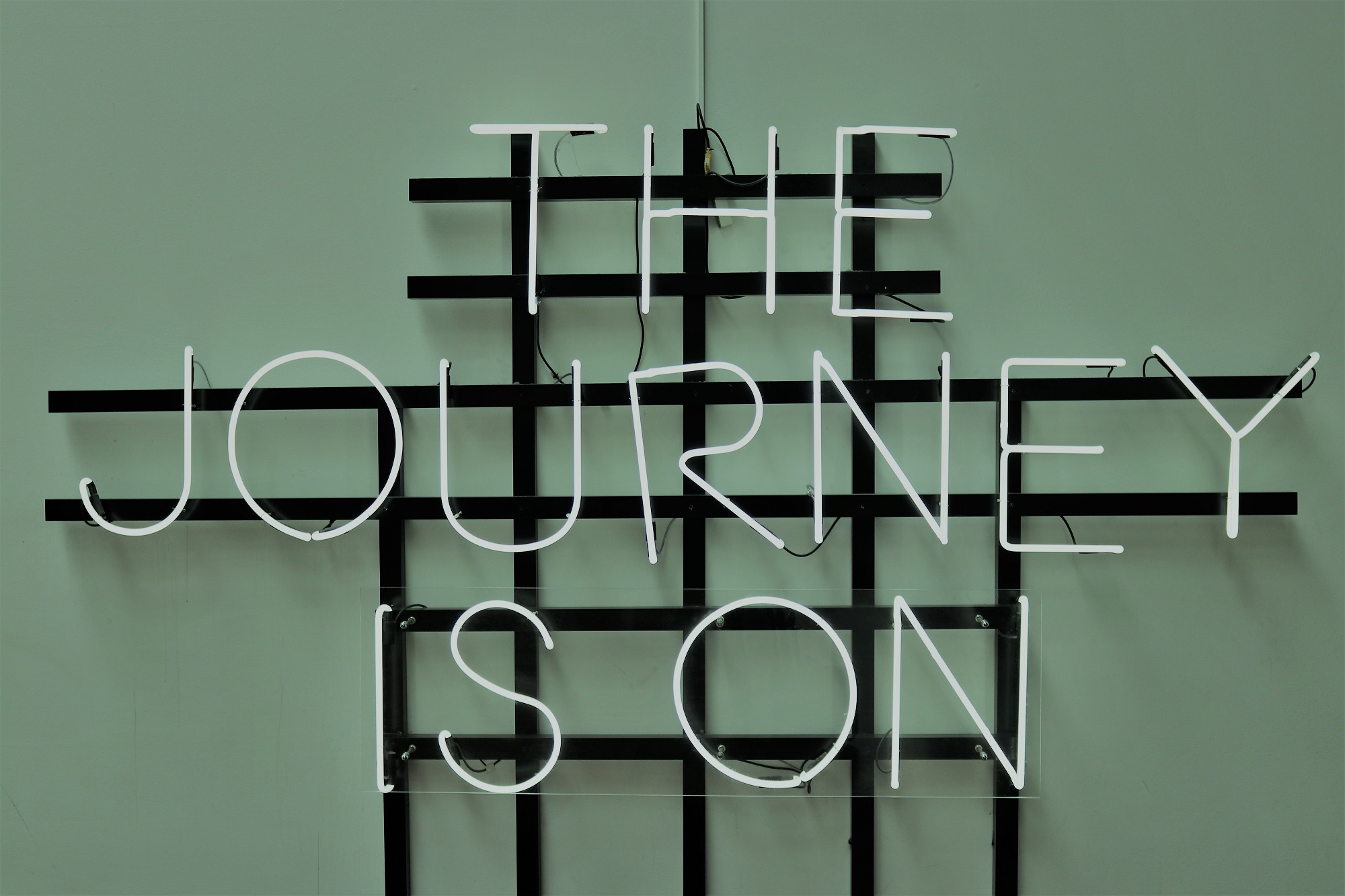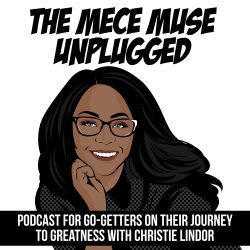We’ve got an amazing show lined up for you now. If this is your first time listening, thanks for tuning in. Show information as well as the new link shared on this episode can be found at www.MECEMuse.com. Come back often and feel free to add the podcast to your favorite RSS feed, SoundCloud or iTunes. You can also follow me on Twitter or LinkedIn. Just search for Christie Lindor or check out my blog at www.ChristieLindor.com. If you have a question about consulting or would like to be a guest on the show, we would love to hear from you. Drop us a line at MECEMuseUnpluggged@Gmail.com. Now, let’s get on with the show.
Listen to the Episode Here:
Podcast: Play in new window | Download | Embed
Subscribe: Apple Podcasts | Email | TuneIn | RSS | More
In our episode, we will be doing a segment that I call Crossroads. For those that are new to the show, Crossroads are interviews where a guest is either thinking about making a transition either in or out of consulting and we just have a conversation about that. With that, I am very excited to have Joan on the show. Joan, welcome.
Thank you for having me.
I’m very excited. I think we’re going to have a really good conversation. Joan, before we get started with the interview, maybe if you could just take a moment and introduce yourself to everyone and share with us a little bit about the type of guidance that you’re seeking and the type of work you are currently doing.
To date, I’ve been a consultant at my company for six years and I majored in Finance and thought that this was the path that I was supposed to take, given all of the options out there for my degree. I was working at my company and went through a rotational program working on various clients in the financial space and on various types of regulation. I thought by getting the opportunity to explore different clients or different types of regulations, that I eventually find something that really sparked my interest. With that, I also made manager last year and in my mind it feels like a pivotal moment between when you’re initially starting out your career and building a name for yourself versus when you really committed this profession in being who you are.
That’s where I am right now and what I’m realizing is that the work that I’ve been doing over the past six years, I’m not sure if I really ever identified a mission or purpose associated with that. I think I’ve focused more on this, it intellectually keeps me motivated, but I’m missing that underlying feeling of how am I helping our society or our global environment. To your point on crossroads, I’ve been exploring different career paths and that’s not to say that I want to leave consulting completely. Whether there are opportunities within consulting that may have more of that focused in terms of being more focused on improving society or that I need to completely change careers and making that decision and how to take those steps to do that.
What’s interesting about this scenario is that I actually hear it often, where individuals who are in consulting, and it sounds like if you’re six years in and you’re now recently promoted to manager, you’re probably doing really good things. You are high performing, you’ve got a really good network, and people do get to that crossroads in consulting. It’s actually happened to me in the past as well, where you start to question the impact of what you’re doing. First of all, I commend you for being willing to question that and thinking about what does that really mean? I think sometimes we get caught up in different elements or just get comfortable and don’t have those types of meaningful questions. Kudos to you for just even starting that conversation and trying to figure out what that means.
With that, you mentioned a lot of things that I want to talk about here. Six years and now a manager, you’re really looking at identifying a mission or a purpose in helping society. With that, I want to take a step back and talk a little bit about when you mentioned you had finished school and had gotten a finance degree and I think you said something that that what was expected of you in some way. Maybe you can talk a little bit about that because sometimes, the root of that decision may help us here out a little. How did you figure out consulting? Was it something you heard your classmates in school say, or is it something from your family background? Maybe give us a little context there.
Maybe it actually goes even before the career. My dad was really pushing me to get a degree in finance. I was actually finance and another degree at the time. I had interned at my organization and fell in love with the people, not necessarily the work that I was doing. I did have an opportunity to change into the program that I was going into, which made me feel a little bit better, but in terms of the path I was supposed to take, I interviewed at different organizations. In terms of the fit with my personality and what I was looking for, I don’t think that I necessarily fit into their organization. I guess I have approached the careers that I’ve taken more from a, “Do I fit within the organization as a person that I will find something that piques my interest, or to your point, finding comfort and things that I feel that I know how to do?”
Your dad pushed you towards the finance degree and you went to the internship, which then you really liked the folks, not necessarily the work. That’s what I’m hearing. In that same timeframe, what was some of the types of work that you did like? Did you ever have those moments where you’re like, “I really like this?” Whether it was work related or not, have you had that moment yet where there was something you really liked?
I think if I can separate the content of what I’m doing from the task that I’m doing. I really enjoy getting people who are from different parts of an organization to come to an agreement, especially when there are a lot of arguing and maybe confrontation. I really enjoy that aspect of it. I’ve really been able to get people to come together when you know everyone has their own opinions on how things should be. I enjoy the problem solving aspect of it as well. How do we take this thing that the financial regulator has put out and how do we actually improve an organization through what is being required of them? I liked the aspect and the skills associated with it, but if I take a step back and really look at what I’m doing or what the type of work that I’m doing, I think that’s where I start to have a disconnect of what does this all really mean. Ten, fifteen years from now, will what I’m doing really make a difference?
I want to jump back to another point you made on helping society and finding that mission. Is there a mission that you have in your mind of how you’re defining this impact that you’re looking to fulfill? When I ask that, is it people related? Is it organizational related? Is it a specific type of industry? Is there something that you’re like, “I really would love to say, I’ve helped make an impact in X.”

The internal work that I’ve started to get involved in had actually pushed me to this realization that I now have of what I’m doing in my career may not necessarily be what’s right for me as a fulltime career. I’ve been getting involved in volunteering and mentorship. I had volunteered at an all-girls school, teaching them financial literacy. Just being able to see that impact on their lives of them not knowing even what a savings account is, for example, and knowing that I made that direct impact on their lives was something that really resonated with me. Then also this idea of diversity and inclusiveness. I think one of the other things that I really enjoy doing is how do you make teams work better? It’s really involving those aspects of diversity, inclusiveness, and identifying what are people good at, what are their strengths, what are their weaknesses, and how do we come together as a team. I’ve been able to identify areas of my work right now and getting involved externally outside of my work to really identify those areas that do give me a sense of joy and a sense of passion and purpose. I think only doing that in my free time or as like a side point to my day job, it’s not enough for me.
It sounds like with the types of work that you’re doing, in a volunteer, internal initiative effort is really starting to come in as a forefront as another opportunity. Just to challenge that a little, if there were other initiatives that you were involved in, did you feel like you have the same level of impact, or have you noticed that it’s always the theme of the mentorship, the inclusiveness work, the highest performing team type of work, that that’s the case? I ask that question because sometimes when we really don’t like what we’re doing, the grass always seems greener on other things that we’re currently doing now. Is it that you found those or have you tried other things and ultimately lead you back to the fact that you really liked this type of work?
I’m not 100% sure. I do understand your point. I guess one thing that I could maybe relate it to is in my exploration of careers and other possibilities, I’ve considered going down a teaching route. What would it be like to be a teacher? I think that does touch upon a lot of different areas that I’m interested in. I do think in reading articles about the pros and cons of teaching, there may be aspects in which that may not necessarily be the grass is greener type of situation. I have considered, is it that the external thing that I’ve found has just seemed slightly better than what I’m doing, or is it really something that I can go into? I think that’s something that I’m trying to still figure out for myself. I guess that’s where I’m also not sure of do I take the leap of faith identifying a good opportunity, not just taking any opportunity, but something that’s maybe more related at least to what I think that I may be interested in to do?
That’s helpful. As you speak, it definitely sounds like you want to do a pivot. If I’m hearing you right and if I’m recapping and feel free to correct me if I’m wrong, it sounds like it’s not necessarily the consulting, because you do like working with people coming together, brainstorming, the problem-solving aspects, which is a lot of what we do. It’s really how you’re doing that in what specific areas you’re doing that.
I would agree with that. In my exploration process, I have tried to look into other areas. The one thing is that I’m still trying to find the industry that I feel would be most impactful.
Now that we’ve gotten that, this is a really helpful context, I know you were talking about do you stay in consulting and do something different or do you go something completely different or an entire different pivot. With that thread, is there anything in consulting now that you really don’t like? I don’t know the type of work that you’re doing, Joan. Are you traveling a lot? The demands of the career, is any of that a problem or you’re fine with that? It’s just the impact, the end result impact, that’s really important to you.
I would definitely say that the impact is the most important. I enjoy the people that I’m working with. I’m not really traveling, which is a pro for me. I know that this is very in line with consulting where you’re being dropped into an area where you may not necessarily have the expertise. I think I start to have a little bit of hesitation there in terms of having the feeling of being thrown into the deep end without necessarily the right support there. At the same time, I think it’s also interrelated with the idea of if I was really interested in this area and this topic, I would be more than willing to go and learn about these new concepts. I think it’s hand-in-hand of feeling less motivated or feeling less interested in taking the time to actually learn what I’m doing. I sometimes feel that I’m learning it for the project and then allowing it to fall to the background of my mind and not necessarily want to keep it fresh in my mind.
Now that you’ve got about six years, do think that there’s another type of role that you would be looking? Let’s take out the impact part of it. Do you see yourself working at any other particular type of organization? I know you mentioned teacher. I don’t know if that was a teacher at an academic space or if it’s a teacher at a corporation. Maybe tell me a little bit about what would be alternative things that you would be interested in and just to think that through a little.
I really actually do like managing projects. I have been looking into opportunities at startups specific in youth or improving poverty as a program manager because I think those are the types of things where I can feel connected to. I’ve also explored the area of diversity and inclusiveness. A lot of organizations have either a global or a regional diversity and inclusiveness group which focuses on how does the organization develops programs or how do they look through developing frameworks of improving their diversity and inclusiveness? Those are the main areas that I’ve been looking at. I think it’s really having to do with either mentorship or teaming, I guess would be the main focus is.
It sounds like you do a little bit of an idea of other areas that you’d interested in. At a manager level, they would welcome you with open arms. Any NGO organization that you’re talking about, being a program manager, you can even go in as an entry level junior executive at some of these organizations. They would love you obviously because you definitely have that well-rounded skill set that they look for. What do you think is stopping you from making that leap?
I think it’s a couple of things. I think one is probably the comfort level of having been with my organization for six years and obviously not wanting to burn bridges associated with that. I guess the other part of it is because I am at a point where it’s teetering between starting off my career and really moving towards this isn’t until I retire, it’s how I think about it in my mind. I haven’t yet developed a lot of the content knowledge associated with a lot of these other organizations. It’s me needing to become comfortable with uncomfortableness, being willing to take the leap and say, “This seems like something that I’m interested and I should just go and do it without necessarily feeling or being 100% sure that that’s the direction that I wanted to take.” I am 100% sure that this is not, at least, from a content perspective, the career path that I see for myself.
You talk about being uncomfortable or the unknown of that piece of it. I think we all struggle with that from time-to-time depending on where we are. I think sometimes that can become a paralyzing space to be in. I don’t know if you’re like me, but I know sometimes if I feel there’s a decision that’s pending and I just continue to prolong it for one reason or another, it just goes on and on and then it gets to a point where you may make a decision but it may not have been what you wanted it to be. Something happens where you end up making a decision or an opportunity presents itself in some way. If an organization was to call you and say, “Joan, we’ve got this amazing opportunity. We’re looking for someone with a specialty of a finance background,” and it’s an organization like a school or something that does has that type of mission. Do you think you would interview with them or you would just say, “No, I would just hold off?”
I think I would definitely interview with them. Maybe if you asked me that a year or two ago, I’ve probably would be unsure. I think at the bare minimum I would definitely interview with them. I think the point where I haven’t necessarily gotten the uncomfortableness to is the actual pulling of the trigger of going and accepting the offer. I tend to want to think about it or take the time. I understand like sometimes that’s the right thing to do, but at the same time I guess having enough conviction in myself to say, “Yes. You explaining this job to me, this is exactly what I want and I’ll take it.” I think a lot of that does have to do with maybe me not trusting myself enough and wanting to go out for external approval of whether it’s speaking with family members or friends. In some ways I do think that this is felt universally. It’s not just me, but I think that’s it’s really needing to have to deal with that situation of I need to trust myself enough to make this decision and not worry about what others think of me making this decision.
You said it very nicely, Joan. You’ve proven that you’ve gotten feedback from other people. If we go back to the decision of a finance degree, the decision to go into consulting, you did that with the consensus of others and you’ve proven that to be successful. I think it is being willing to trust in yourself and knowing. You have a yearning. Obviously, if you’ve gotten to this point where you’ve began to reach out to others, you’re really thinking about it. It’s in the top of your mind, that’s your gut talking to you. That’s your gut saying, “This is not it Joan. As great as this is, this is not it.” I think you owe yourself the chance to figure that out and sometimes that will be uncomfortable.
I think you’re asking the right questions. Again, I applaud you for the courage to ask them. I think it’s, “What’s the next step?” If I recap where we are with this conversation, I see three tracks, if you will. I’ll start with the one that’s the most comfortable, is you stay in your current role. Let’s say if we get off this call, you go back to your world and you just continue to do the volunteer work, the mentorship, the diversity, and the inclusiveness work that you’ve been doing on the side and you’re just looking at that. You can continue to do that and continue to make everybody happy with the decisions that they’ve helped you make.
The second part of that is, and this is probably the least of all, is you’ve been at your current firm six years, you’ve obviously built a great brand. You have a nice foundation there, a good network, it will take a 20% pivot to then continue to build up the internal initiative and the experience you have, but start to make that more open. Start to letting people know that that’s what you want to do and start to pivot that way. That may take a couple years, but you can still be in consulting and start to do that type of work over time and eventually move into that space without burning bridges, as you say.
I don’t think leaving means burning bridges either. I’m going to talk about that in a second, or you can go out there with option three and find an amazing non-profit that you will be so excited to wake up. I want you to imagine waking up every day doing exactly the type of work that you want to do. You’ve got the skills, you’ve obviously got the background if you’ve been in this space for six years, and you could do any type of work. Imagine every day waking up totally fulfilled and really helping make a difference in the world, given the background that you’ve had. When you think about those three scenarios, what comes to mind for you?
I think it’s obviously the scariest, but I feel like the third option is really I think what I need to do. I think for some time I’ve been obviously feeling very comfortable in staying in the role that I’m in and to your point, I’ve built a really good network of people, but to me that’s really just not even an option. Then to your point of building the internal initiative and I guess just trying to make a role for myself or trying to create something for myself. I don’t know if I will allow myself to do that, knowing that I can very much easily just fall back into that comfort zone. Because I haven’t had previously this feeling of leaving something and just starting something completely new. I went from my internship and working in the same organization into my fulltime. I really haven’t given myself the opportunity to feel what it is to be uncomfortable in the sense of starting new and fresh and really looking for opportunities that fit what will give me more of a sense of purpose.
I’m sure I’m not the first person to tell you this, Joan, but if it scares you, chances are that’s probably where you need to head to really go to the next level. This is your heart and your head that’s talking to you right now. It’s going to keep talking loudly and you’re going to keep being put in scenarios and different things that are going to continue to lead you towards that direction, but only ultimately you have to make the choice and decide. It sounds like the choice is obvious. Anything else comes to mind for you at this point?
I think this was really helpful. I just think about other friends that I have had in the same or similar position as me. I guess I’m taking the time to look at myself from an external perspective rather than allowing the fears that I have internally dictate what I’m doing. I think it’s just continuously focusing on if I were to be speaking with a friend or with someone else, would I be saying the things that I’m saying to them or what would be my opinion if it were someone else that wasn’t me?

We are always good at giving advice that we need to take ourselves. I know I am. I think you owe it to yourself, Joan. You’ve done everything everyone else has said. I think it’s time that you listen to yourself and listen to your inner voice. I think actually it’s not listen; I think you are listening to your inner voice now. I think it’s taking the next step and actually activating it. There’s always going to be discomfort. When you’re growing it is uncomfortable. I think we all experienced that in some way. I think one thing you mentioned about not burning bridges, you’ve built up this background and can you just tell people like, “I know you’ve been super supportive of my career. I really want to get more into whether it’s non-profit or whatever. I want to do something that’s really impactful for me, is really meaningful for me. I don’t care what the partner, what the practice, what firm, there’s no one that can take that away from you and to take away your joy. All they can do is support it. There’s nothing no one can do about that.
If anything they would love to see and support your organization. A lot of consulting firms, they partner significantly with a lot of nonprofits and there is that private-public sector partnerships that take place. You never know where it can go. It’s not like this is the end. It’s actually can just be the beginning of something even more fruitful that you can take your breadth of experience and the breadth of your network to really drive impact in an organization for people’s lives. I think sometimes thinking of it that way, may help you look at it differently. I can see people, they’re thinking burning bridges if you go to a competitor and go and do exactly what you’re doing right now and you go do it somewhere else or something in that effect. I can see people taking no offense, but if it’s to go and do meaningful work out in the world and make an impact, I don’t know who wouldn’t support someone wanting to do that. I just don’t see that. All that to say, I think follow your dreams. You’ve obviously done great things. You’re a manager for six years which is awesome. I think it’s time to fly, Joan. Even as I say that, like, “What’s going on in your mind right now as we’re talking about this right this second?
I’ve obviously been thinking about this for more than a couple of months, probably half a year. Going back and forth thinking, “Is this really what I want or is this not really what I want? What is it?” I think that’s caused me a lot of anxiety. I think this is probably the first time where I’ve actually felt a little peaceful with my decision and just reminding myself to really focus on what I believe is true and to hear what people are saying, but to acknowledge that that’s their opinion and they have their own life to lead and can make those decisions, but this is the life that I want to lead.
That’s it. It’s your life. Every day you wake up uncomfortable, it’s another day you go to sleep uncomfortable in your own skin. If you think about it that way, there’s nothing to lose. What’s amazing about consulting, which is different from other industries, is that even if you leave, you can always come back. You can always go back into the space. What’s interesting with that, because you say you’re not completely closed off to consulting, you can go out, do the impact, do the type of work you want, gain the experiences in the DNI and the mentorship space, and come back doing that type of consulting work. That’s a possibility, too. I feel like there are a lot of possibilities. Don’t leave them on the table. I think you’ve got a lot if you just let yourself do that leap.
Thank you.
I wish you the best of luck, Joan. I know this is probably one of many other conversations, but I hope this is going to steer you towards the right direction for where you want to go.
It’s definitely been very helpful and I thank you so much for allowing me to come on here and to speak with you as well.
We would love to have you back on the show in the future when you give us an update on what you’ve decided, but again, I wish you the best of luck.
Thank you.
I hope you enjoyed our episode. This pop-up podcast was inspired by my upcoming book, The MECE Muse : 100+ Selected Practices, Unwritten Rules, and Habits of Great Consultants. I have people ask me over the last year any questions about this book, but the one question that comes up constantly is, “Christie, you have such a demanding career. How did you find time to write this book?” Honestly, the answer is simple. I really sought to become the mentor that I wish I had earlier in my career. In the beginning of my career, I didn’t have many mentors, mental maps of what success really looked like. I really struggled with that in a lot of different ways, but what’s nice about struggles is that I overcame them. I grew stronger and more competent and I’m so excited where I am now in my career. I just want to share what I’ve learned and be able to help you.
I wrote the book with my years of experience, but I also had an amazing opportunity to connect with over 50 or so consulting partners and leaders across the industry, sharing their stories, their antidotes, their resources on how you could be a great consultant yourself. Do me a favor, pick up your phone right now. Go to www.MECEMuse.com. I’d love to hear your feedback on my book as well as the podcast. Thanks again everyone and here’s to your journey to greatness.


